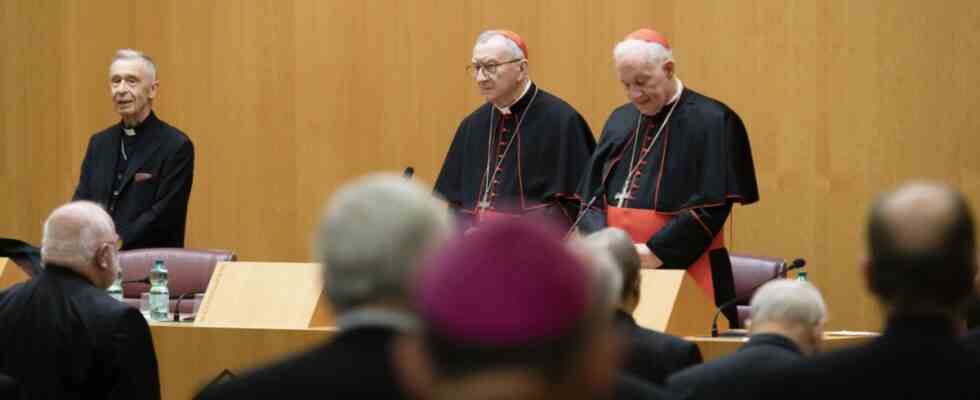These words usually remain behind the tightly closed doors of the Vatican, but now they are available for all to read: On Thursday afternoon, the Holy See read the speeches of the Curial Cardinals Luis Ladaria and Marc Ouellet published during the visit of the German bishops in Rome last Friday, in several languages.
So much transparent communication is unusual for the Vatican
So much transparent communication is unusual for the Vatican, and it could be seen as the first small success of the German synodal path: The chairman of the German Bishops’ Conference, Bishop Georg Bätzing of Limburg, had already made his lecture public on Saturday.
The synodal path, this highly controversial reform debate between clerics and lay people in Rome, was the central topic of the meeting lasting several hours a week ago. It was already clear that the curia cardinals read the German bishops the riot act – but now, in black and white, the criticism is all the clearer.
According to the speech transcript, the 78-year-old Canadian Ouellet said that the synodal path hurts “the community of the church” “because it sows doubts and confusion among the people of God,” and called for a moratorium, i.e. a temporary suspension of the reform debate. The German bishops had successfully fended off this advance.
Ouellet went on to say that many critics of the synodal path fear a schism, a schism in the church. “The concessions that appear in your proposals were, so to speak, wrested from you by very strong cultural and media pressure.” It is striking that “the agenda of a limited group of theologians from a few decades ago has suddenly become the majority proposal of the German episcopate”.
The abuse scandal is being exploited, Ouellet argued further: “It is difficult to resist the impression that the extremely serious matter of the abuse cases was used to push through other ideas that are not directly related to it.”
The supreme Roman guardian, the 78-year-old Spaniard Luis Ladaria, also raised numerous concerns. He sharply criticized the synodal texts on Catholic sex teaching: They gave the impression that everything had to be changed in this area of church teaching.
The synodal path reduces the church to a “mere institution of power”
Ladaria also dismissed the claim that women’s dignity was violated because they were not allowed to become priests, quoting John Paul II: “The point is not that women cannot be ordained priests in the Catholic Church; the point is that one must accept the truth that ‘the Church has no authority whatsoever to confer priestly ordination on women,'” he said.
Ladaria admitted that many people felt “betrayed” by the bishops and praised the German Catholic Church for its efforts to prevent abuse. However, he criticized the synodal path’s image of the church, which reduced the church to a “mere institution of power” or an “organization that produced structural abuse”.
Ladaria defended the ecclesiastical hierarchy: the church is an “ordered community” founded on one head, on Peter. The bishops, as successors to the apostles, are therefore authorized to proclaim the magisterium. “It is therefore not possible to equate this delicate and crucial task in the life of the Catholic Church with other offices in the Church, such as those of theologians.”

